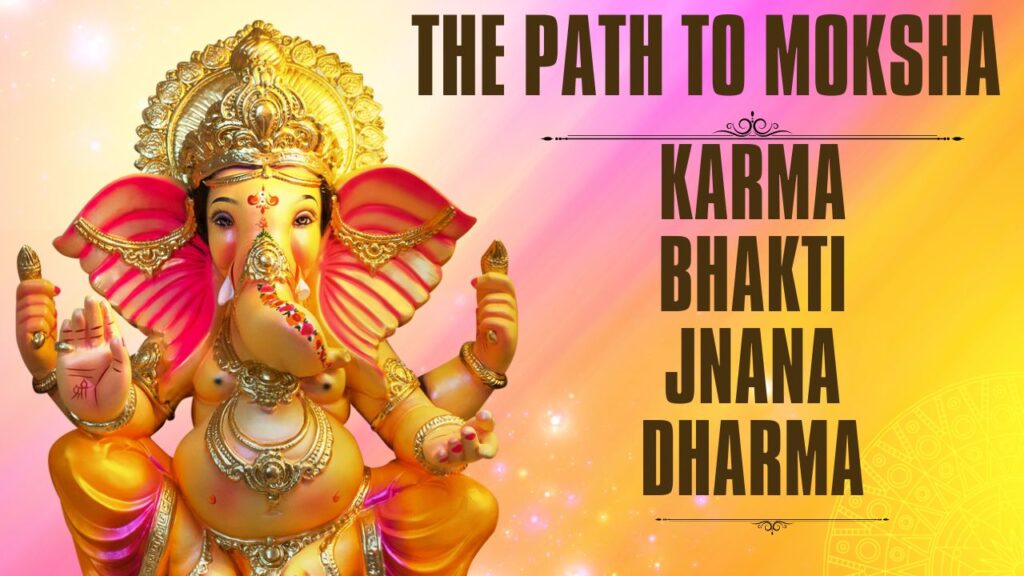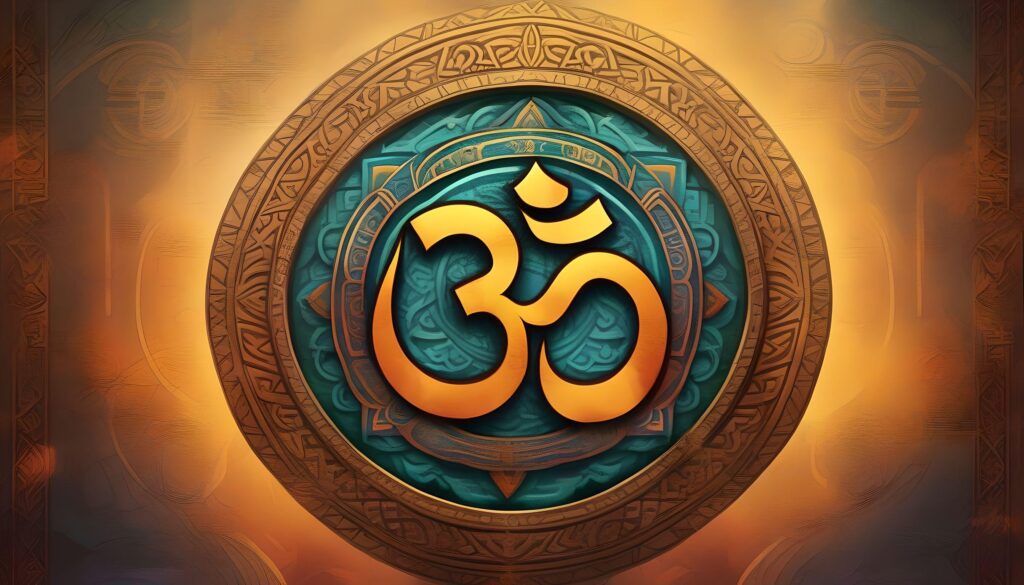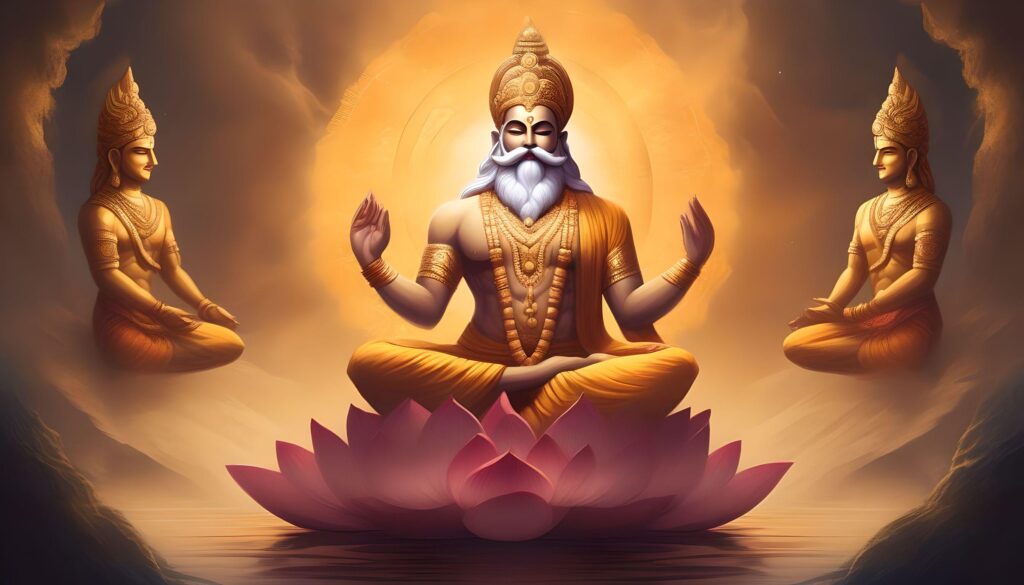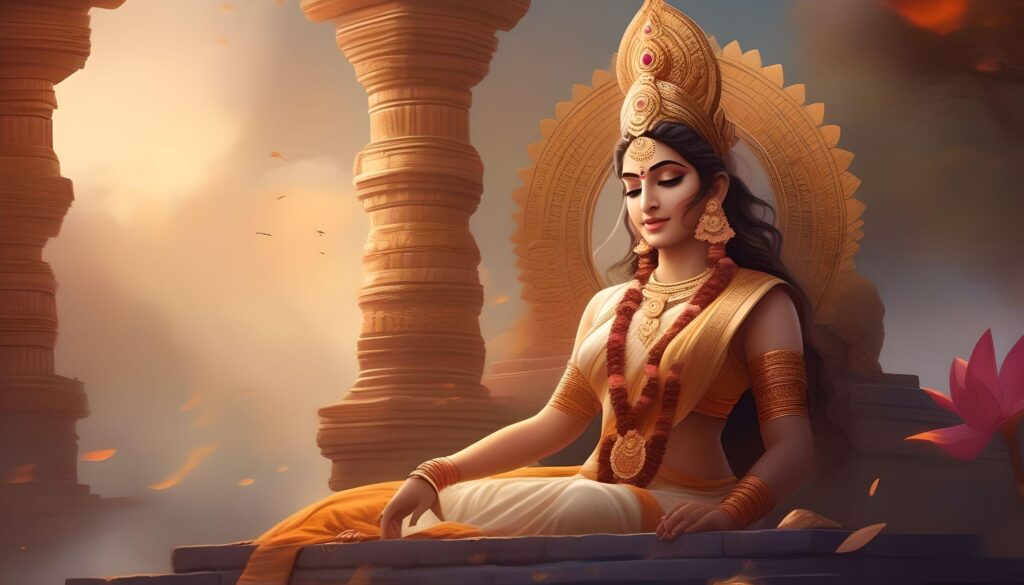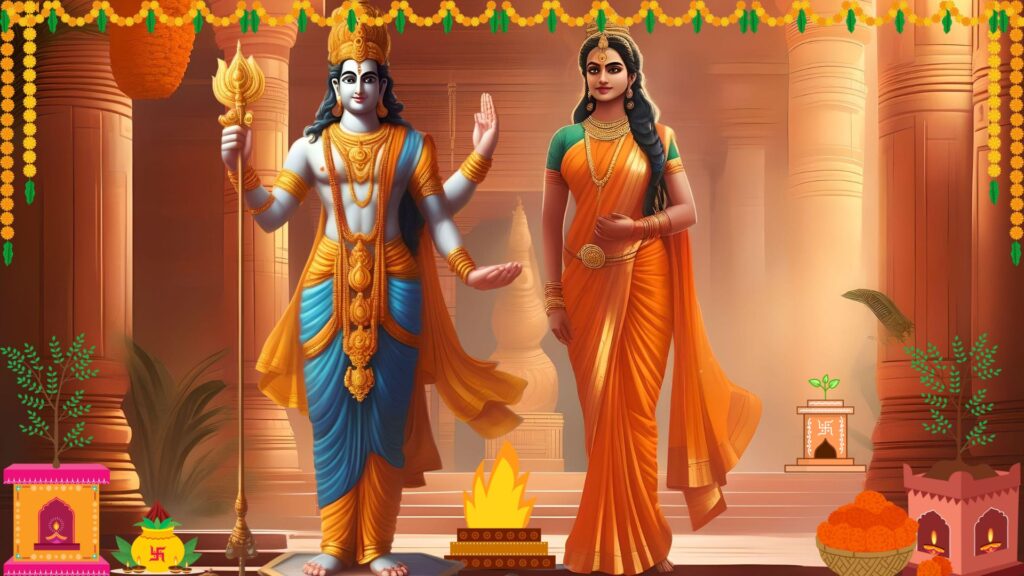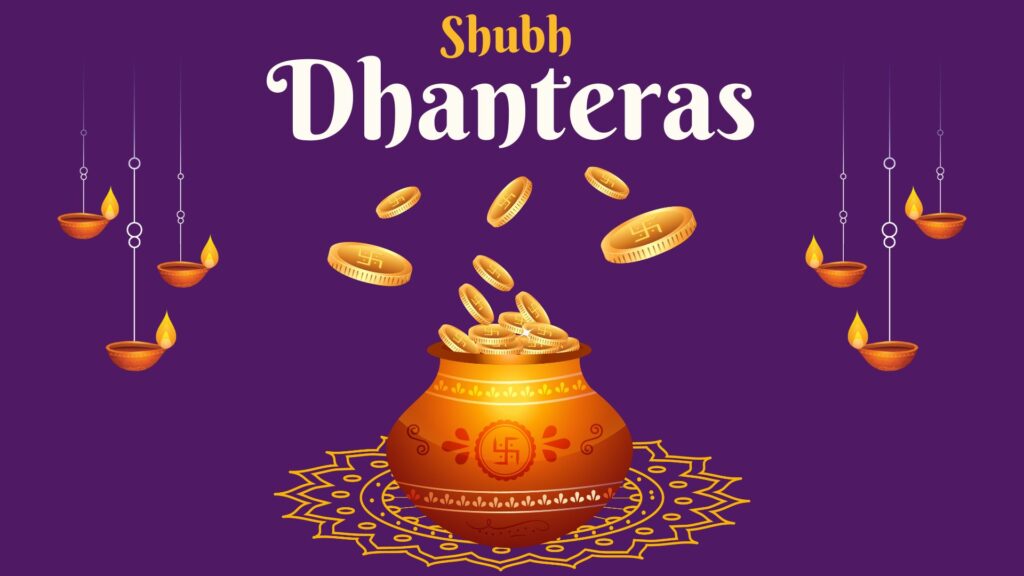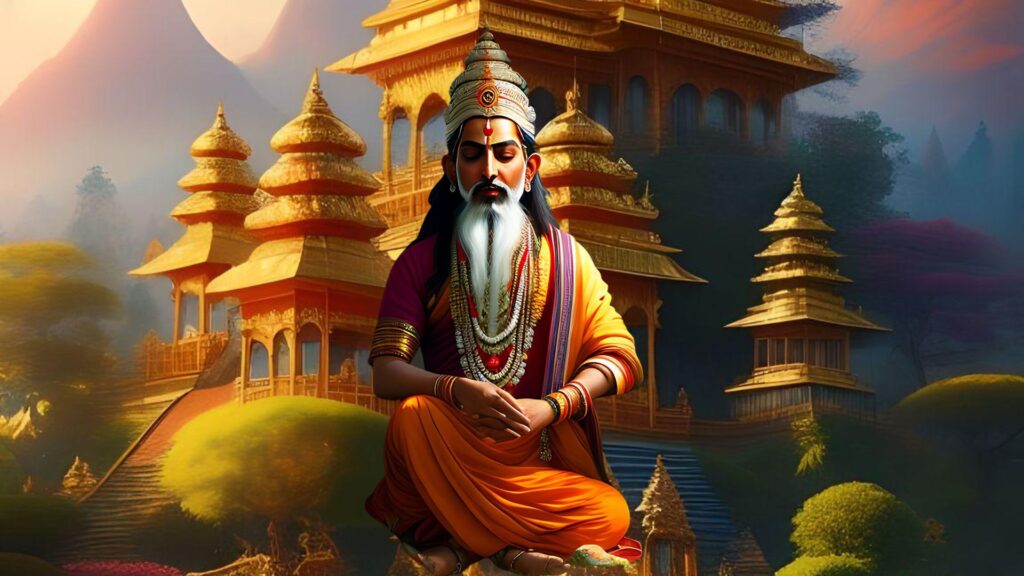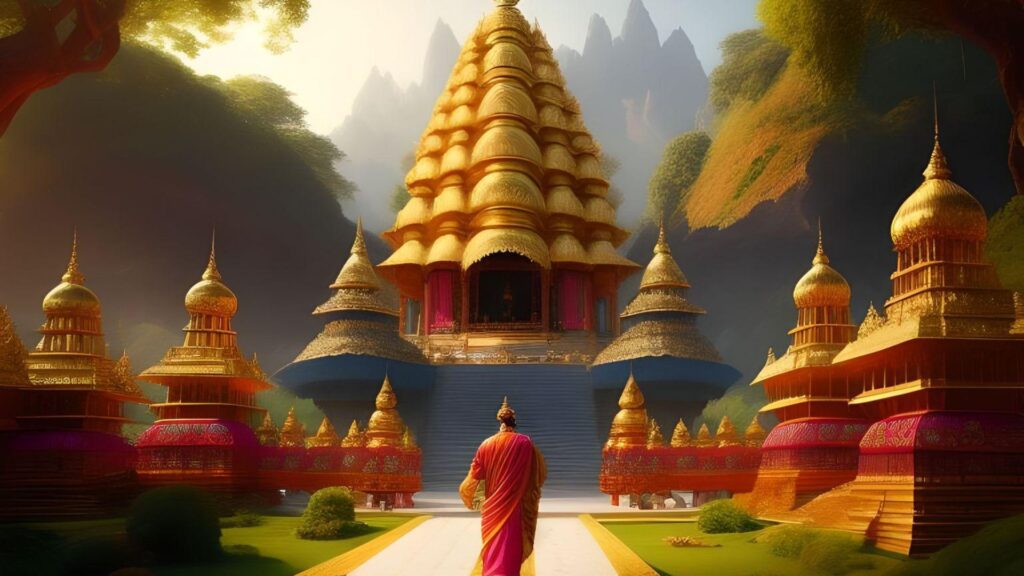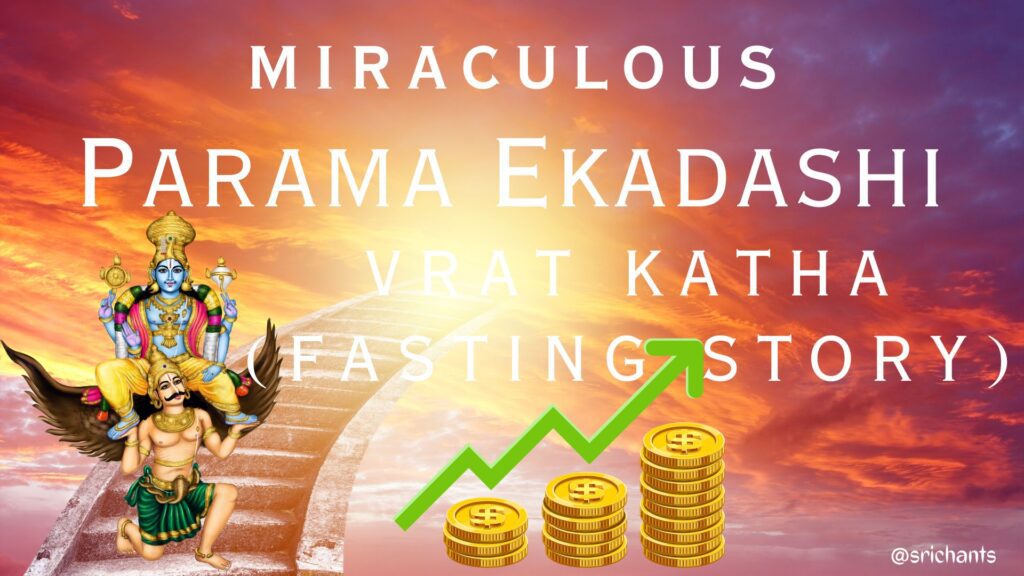Moksha Unleashed: A Spiritual Odyssey Through the Tenets of Hinduism (13 points)
Hinduism places significant emphasis on the initiation of a spiritual journey, wherein Moksha is regarded as the ultimate aspiration. The attainment of moksha, often rendered as “liberation” or “release,” signifies the utmost accomplishment for individuals desiring to transcend the recurring pattern of existence and demise. Moksha, an element within the vast realm of Hindu philosophy, serves as a beacon that illuminates the path towards enlightenment and union with the supreme being.
I. Introduction
Hinduism assigns considerable importance to the commencement of a spiritual expedition, with Moksha being considered the pinnacle of that endeavor. The achievement of moksha, which is frequently translated as “liberation” or “release,” represents the highest level of success for those who wish to transcend the cyclical cycle of being and passing away. Moksha, an integral component of Hindu philosophy, functions as a guiding light that illuminates the way to attain enlightenment and union with the supreme being.
II. Understanding Hinduism
Moksha can only be comprehended with a comprehensive comprehension of the fundamental tenets of Hinduism. This antiquated faith system comprises an extensive array of doctrines and rituals, all of which are united by such concepts as karma, dharma, bhakti, and Moksha. The pinnacle achievement, Moksha, underscores the reunification of the soul with the divine and its liberation from the recurring pattern of reincarnation.
III. The Path to Moksha
The path to Moksha encompasses a multitude of detours, each designed to accommodate distinct dispositions and predilections. Righteous action is mandated by karma, the principle of cause and effect, whereas bhakti promotes devotion to a supreme being. Dharma, the virtuous way of life, and Jnana, the pursuit of knowledge, are integral components of the comprehensive methodology aimed at achieving Moksha.
IV. Moksha in Scriptures
Moksha is alluded to in numerous Hindu scriptures, including the Vedas and Upanishads, which provide profound insights. An eloquent text in Hinduism, the Bhagavad Gita elaborates on the essence of Moksha and provides aspirants with a path to enlightenment via the teachings of Lord Krishna.
V. Spiritual Practices
Meditation, an indispensable component of Hindu spiritual practices, is a critical element in the pursuit of Moksha. Through the exploration of the most profound depths of awareness, meditation facilitates the transcendence of the physical realm. Likewise, yoga influences the alignment of the body, mind, and psyche by virtue of its physical and spiritual nature.
VI. Moksha and Daily Life
In contrast to the prevailing notion that spirituality is inseparable from daily existence, Hinduism promotes the incorporation of spiritual practices into routines. Achieving a harmonious equilibrium between material obligations and spiritual endeavors enables individuals to effectively navigate the intricacies of contemporary society while simultaneously advancing their spiritual voyage.
VII. Stories of Moksha
Numerous historical and mythological anecdotes describe individuals attaining Moksha through unwavering devotion and virtuous living. These narratives function as motivational illustrations, demonstrating that anyone, regardless of background, is capable of attaining liberation.
VIII. Challenges on the Spiritual Journey
Although the quest for Moksha is a profoundly enlightening endeavor, it is not devoid of obstacles. In order to surmount challenges, both intrinsic and extrinsic, fortitude and unwavering devotion to the spiritual journey are indispensable. Setbacks and uncertainties are natural occurrences that provide chances for development and self-exploration.
IX. The Role of a Guru
Guidance is of the utmost importance on the spiritual path; therefore, a guru or spiritual mentor is indispensable. A Guru imparts knowledge, allays uncertainties, and furnishes a strategic guide for traversing the intricate terrain of the spiritual journey. Identifying an appropriate mentor assumes paramount importance in the pursuit of Moksha.
X. Moksha and Modern Life
On the spiritual path, guidance is paramount; thus, the presence of a guru or spiritual mentor is essential. A Guru imparts wisdom, dispels doubts, and provides a strategic roadmap for navigating the complex terrain of the spiritual voyage. The identification of a suitable mentor becomes critical in the quest for Moksha.
XI. Common Misconceptions
The notion of Moksha, which is commonly engulfed in enigma, is susceptible to misleading interpretation. It is crucial to debunk misunderstandings regarding the essence of liberation and to dispel the myths that encircle Hinduism in order to promote a more profound comprehension of these spiritual concepts.
XII. Symbolism in Moksha
In addition to its philosophical foundations, Moksha is imbued with significant symbolism in Hinduism. In addition to literal interpretations, a closer analysis of the symbolic representations reveals the profound implications associated with this spiritual expedition.
XIII. Moksha Across Cultures
The influence of Hindu concepts like Moksha transcends cultural and national boundaries. An analysis of the diverse cultural interpretations of Moksha reveals its allure and global impact on spirituality.
XIV. Critiques and Debates
Similar to any other philosophical notion, Moksha in the Hindu philosophical traditions is the subject of a variety of interpretations and debates. Gaining an understanding of the diverse perspectives enriches the discourse surrounding emancipation and spirituality.
XV. Conclusion
In summary, the expedition through Moksha constitutes a profound odyssey that encompasses philosophical, spiritual, and everyday domains. By traversing the paths of karma, bhakti, jnana, and dharma, the path to emancipation becomes a profoundly transformative experience. These pathways direct people in the direction of attaining self-realization and unity with the divine.
Frequently Asked Questions (FAQs):
- What is Moksha in Hinduism?
- Moksha refers to liberation or release from the cycle of reincarnation, marking the ultimate goal in Hindu philosophy.
- How does one attain Moksha?
- The path to Moksha involves various approaches, including karma (righteous action), bhakti (devotion), jnana (knowledge), and dharma (righteous living).
- Why is a Guru important in the pursuit of Moksha?
- A Guru provides guidance, wisdom, and mentorship, playing a crucial role in navigating the challenges of the spiritual journey.
- Is Moksha relevant in the modern world?
- Yes, the timeless wisdom of Moksha remains relevant, offering a compass for individuals seeking meaning and purpose in contemporary life.
- How does meditation contribute to Moksha?
- Meditation serves as a transformative practice, allowing individuals to transcend the limitations of the material world and progress on their spiritual journey.
